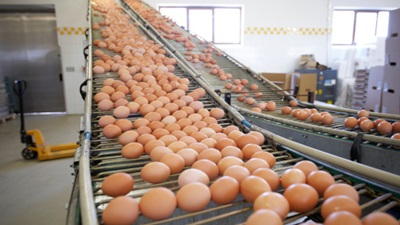
When you begin a journey of sustaining a healthy lifestyle, you’ll find yourself asking, “Where does my food come from?”
When you ask that simple question, it brings you further down the rabbit hole, and you will make discoveries about yourself, society, and this planet that are unimaginable.
In clear view, it becomes evident that there are many issues concerning your food before it ends up on your plate, especially if it comes from a factory farm.
What is factory farming exactly?
Factory farming is primarily a business, raising livestock and confining a high density of animals. Meat and animal byproducts, milk and eggs, are produced from factory farms. Here are three major ways factory farming affects humans, animals, and the environment.
Use of Antibiotics on Animals
Factory farms use antibiotics to prevent, control, and treat diseases with food-producing animals, although there is concern because these animals serve as carriers, containing antibiotic-resistant bacteria.
About two million people in the U.S. are transmitted with antibiotic-resistant infections, with 23,000 dying every year, according to the Centers for Disease Control and Prevention report Antibiotic Resistance Threats in the United States, 2013. This could represent antibiotics unsafe for people to rely on, in order to fight infections.
Like many health experts have argued for a while now, the report says that the heavy use of antibiotics in animals is dangerous. “The use of antibiotics for promoting growth is not necessary, and the practice should be phased out,” the report noted.
Besides the antibiotic-resistant bacteria issue, animals are also injected with growth hormones. In fact, 80% of all U.S. feedlot cattle are injected with hormones, according to Science News. The use of natural and artificial growth hormones in animals poses a risk to human health. Naturally occurring hormone levels increase seven to 20 times, when injected into cattle. Hormone-raised meat was banned in Europe because of the dangers from meat treated with synthetic sex hormones. The risk of breast and other cancers are reported to increase with uncontrolled use of hormones in meat.
Animal Cruelty
When people witness how animals are treated in factory farms, it’s usually a trigger to switch to a vegetarianism lifestyle or at least discover more compassionate ways to get meat or protein and iron sources.
On factory farms, animals aren’t even treated as living creatures. Remember that catchy nursery rhyme? To be accurate about today’s food sources, it would have to go a little something like this:
Old MacDonald had a farm…E-I-E-I-O.
And on that farm he had…thousands of pigs crammed in wire cages, jam-packed sheds or on filthy feedlots…E-I-E-I-Oh?
The factory farming industry makes more money by cramming animals into small spaces, keeping them uncomfortably in unhealthy conditions, and feeding them drugs to fatten them. The bigger the animal, the more money it’s worth!
I could go into more gory detail, but I think you understand the painful reality of how animals are treated on factory farms.
Negative Environmental Effects
The growth hormone not only remains in the food we eat, but it also becomes the manure from the animals. There are environmental impacts concerning hormone residue leaks from the manure into the environment.
The over-application of manure and the chemical fertilizers on factory farms becomes a long term problem. When the manure piles up, it can accumulate as nutrient pollution in nearby water sources. Water quality across America is severely damaged with phosphorus and nitrogen, two nutrients present in animal waste. When there are excessive amounts of these nutrients in water, there creates an explosion of algae, eliminating water’s oxygen and resulting in a decrease of aquatic life.
There is also an array of health problems for people living near the factory farms, connected with the gases produced from the animals’ manure. The side effects include headaches, shortness of breath, wheezing, diarrhea and excessive coughing.
Factory farms have to take accountability for their actions and consider alternative methods of raising livestock, which would keep animal waste drier and limit spills, residue runoffs, and pollution. Factory farms should be relegated and obtain permits, while also cleaning and disposing of their own waste, and monitoring the quality of nearby water.
The Foods4BetterHealth Bottom Line
When at your local health food store, consider purchasing 100% traditionally raised quality meats, without antibiotics or growth hormones. These types of cuts of meats are usually produced on a family farm, and you can probably even meet the farmer who raised your steak or chicken.
It will be a satisfying and rewarding feeling when you get the answer to where your food comes from.
Sources:
Morris, T., “Factory farms may be killing us,” Salon.com web site, Sept. 20, 2013; http://www.salon.com/2013/09/20/factory_farms_may_be_killing_us/.
“Factory Farming: Cruelty to Animals,” PETA.org web site; http://www.peta.org/issues/animals-used-for-food/factory-farming.aspx.
“Hormones,” GRACE Communications Foundation; www.sustainabletable.org/258/hormones.
“Environment,” GRACE Communications Foundation; www.sustainabletable.org/265/environment.
“Pollution from Giant Livestock Farms Threatens Public Health,” Natural Resources Defence Council web site; www.nrdc.org/water/pollution/nspills.asp/.












